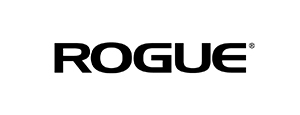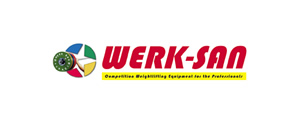WADA Publishes 2015 Anti-Doping Rule Violations Report
Report illustrates doping offences committed in global sport during 2015 2015 Anti-Doping Rule Violations Report illustrates the first set of Anti-Doping Rule Violation statistics under the revised World Anti-Doping Code Report highlights 1,929 Anti-Doping Rule Violations (ADRVs) in 2015, involving individuals from 122 nationalities and across 85 sports 1,649 ADRVs came from adverse analytical findings; 280 from ‘evidence-based intelligence’ non-analytical findings Of the 280 non-analytical ADRVs, 252 were committed by athletes and 28 by athlete support personnel Montreal, 3 April 2017 - The World Anti-Doping Agency (WADA) published its third annual Anti-Doping Rule Violations (ADRVs) Report , which is the first set of Anti-Doping Rule Violation statistics under the revised World Anti-Doping Code (Code). An ADRV is a doping offence committed by an athlete or athlete support person, which results in certain consequences or sanctions. The Report illustrates doping offences committed in global sport during 2015. It highlights that there was a total of 1,929 ADRVs recorded in 2015, involving individuals from 122 nationalities and across 85 sports. 1,649 of the ADRVs were derived from adverse analytical findings (AAFs), commonly known as ‘positive’ results; these 1,649 ADRVs represented 65% of the total 2,522 AAFs that were reported by WADA-accredited laboratories. The remaining 280 non-analytical ADRVs were issued as a result of evidence-based intelligence; of which, 252 were committed by athletes and 28 by athlete support personnel. This represents an increase in non-analytical ADRVs, and is in line with the anti-doping movement’s increased focus on investigations, intelligence-gathering and whistleblowing. “The 2015 ADRVs Report makes for particularly interesting reading in combination with WADA’s 2015 Testing Figures Report that was published last November,” said WADA President, Sir Craig Reedie. “What is particularly striking about this 2015 ADRVs Report is we are beginning to see the first signs of the impact of the revised Code, in particular a significant increase in intelligence-based anti-doping rule violations, an area of increasing focus for the Agency as we strengthen our investigations and intelligence-gathering capacity,” added Reedie. “Whilst testing remains vital to detecting doping, recent events have shown that investigative work is becoming ever more important as we look to protect clean athletes’ rights worldwide.” “Further to our efforts to detect and deter doping, the 2015 ADRVs Report reminds us of the importance that preventative education strategies play in the fight against doping,” said WADA Director General, Olivier Niggli. “Values-based education is one of our core priorities as we engage with athletes to discuss what motivates them to stay clean, why they must not dope and how they can protect themselves against it,” he added. The ADRVs Report is broken down as follows: The Overview comprises an Introduction and an Executive Summary of the Report and highlights the key data. Sections 1 and 2 present the results management outcomes (including ADRVs) of all AAFs detected by WADA-accredited laboratories for samples collected from athletes in- and out-of-competition and received by the laboratories in 2015. They are presented by sport, discipline (Section 1) and testing authority (Section 2). Section 3 includes ADRVs that resulted from non-analytical findings committed by athletes (presented by sport and nationality) and by athlete support personnel (presented by nationality). Section 4 indicates the total number of ADRVs in 2015, which includes AAFs that resulted in an ADRV plus all non-analytical ADRVs. It presents the data by sport and nationality. It is further broken down into type of samples (urine or blood), type of test (in- or out-of-competition) and athlete gender. Consult the Full Report, the Overview and Questions & Answers document. Source:














